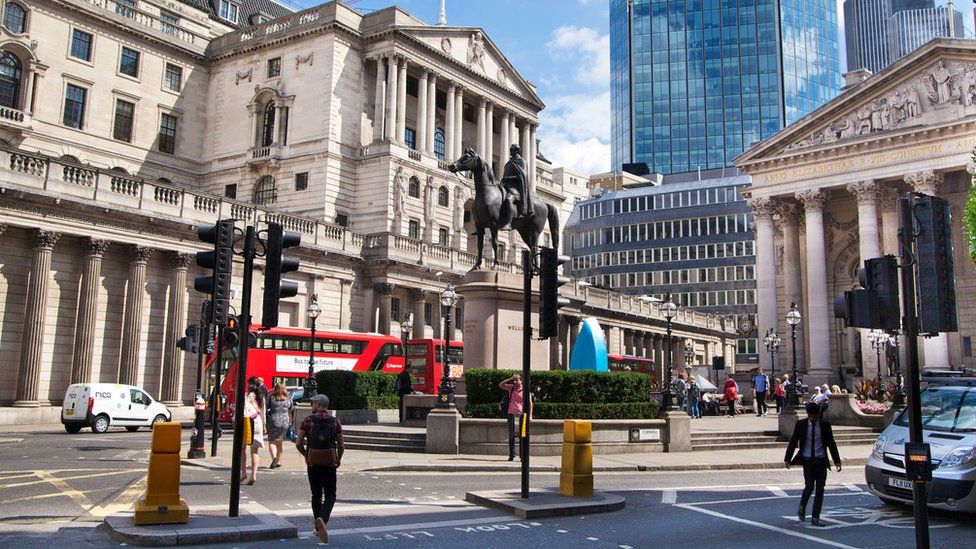
The UK government recorded a surprise surplus in its finances in January despite "substantial spending" to help with energy bills and EU payments.
Higher-than-expected self-assessed income tax receipts boosted the UK's coffers, helping it spend less resulting in a £5.4bn surplus.
The figures come as the government is set to deliver its Budget next month.
Economists said they showed a "mixed picture" with public finances still weaker than this time last year.
Martin Beck, chief economic advisor to the EY ITEM Club which is a UK economic forecasting group, said the figures gave chancellor Jeremy Hunt"some positives to work on" in his Budget, with the fall in cost of wholesale energy meaning the government's spending on support with bills "will be a fraction" of what was officially forecast.
However, because the government's fiscal rules around debt related to five years in the future, Mr Beck said short-term movements in the financial position "don't have much bearing" on policies.
Public borrowing in the financial year to date is £30.6bn less than predicted by the Office for Budget Responsibility (OBR), the government's official forecaster.
Mr Hunt said debt was still at the highest level since the 1960s.
"It is vital we stick to our plan to reduce debt over the medium term," he added.
"Getting debt down will require some tough choices, but it is crucial to reduce the amount spent on debt interest so we can protect our public services."
Every January, the government tends to take more in tax than it spends in other months due to the amount it receives in self-assessed taxes, according to the Office for National Statistics (ONS).
But most economists had expected borrowing to rise this time, in part due to the large amount the government is spending on supporting households with their energy bills.
It is currently limiting the average household energy bill to £2,500 - although it says this will increase to £3,000 from April due to the high cost of the scheme.
In addition, the ONS said the government had faced "large one-off payments" in January relating to historic customs duties owed to the EU.
In the end, however, there was a surplus in the public finances due to a surprise increase in self-assessed income tax payments.
Receipts were £21.9bn in January, the highest January figure since monthly records began in April 1999.
But January's overall surplus was £7.1bn smaller compared to the month in 2022 and interest repayments on government debt hit the highest amount for the month since records on that data began in 1997.
The ONS, which releases the figures on public sector finances, said the rise in debt repayments, which totalled £6.7bn in January, was "largely" because of inflation.
Related Topics
https://news.google.com/rss/articles/CBMiKmh0dHBzOi8vd3d3LmJiYy5jb20vbmV3cy9idXNpbmVzcy02NDcwNTA1MdIBLmh0dHBzOi8vd3d3LmJiYy5jb20vbmV3cy9idXNpbmVzcy02NDcwNTA1MS5hbXA?oc=5
2023-02-21 08:01:27Z
1792579036
Tidak ada komentar:
Posting Komentar